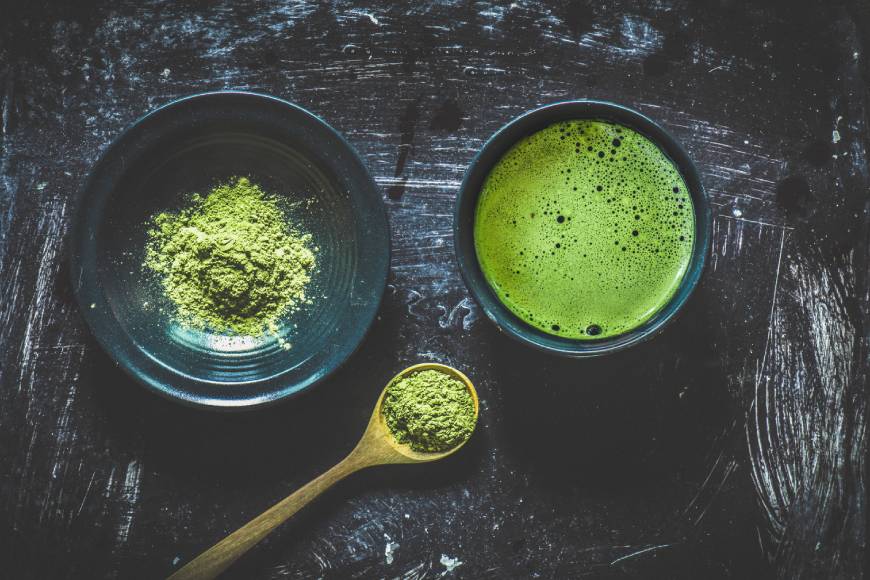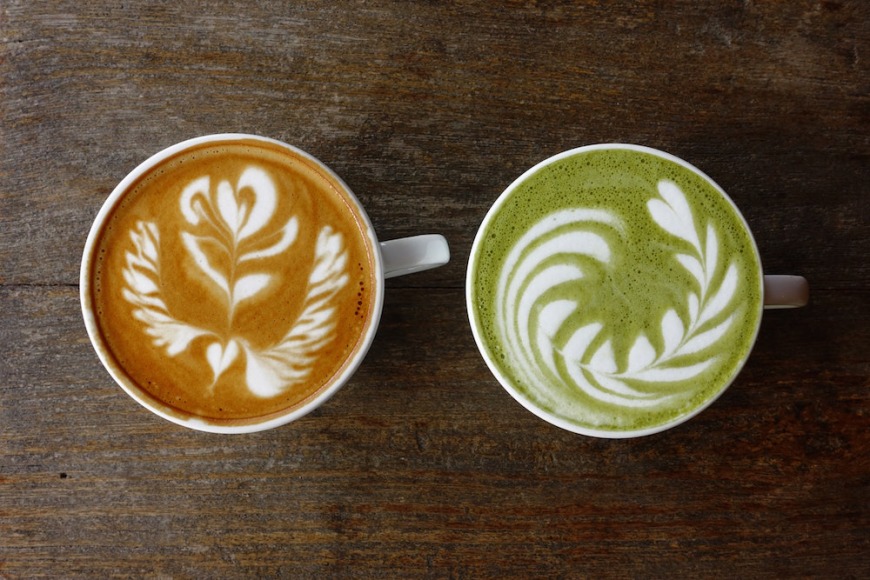If you fancy having a go making a frothy green tea at home, Pure Leaf’s Matcha Pure sachets (£5 for 12 sachets, ocado.com) are fuss-free way of getting in on the trend without having to measure out messy powder.
Simply pour 50ml of boiling water over the contents of one sachet and whisk until it’s dispersed. Then add another 150ml of water and whisk until creamy.
The great thing about matcha, apart from it’s distinctive green hue, is that it’s a really versatile cooking ingredient. As well as hot beverages, powdered matcha can been baked into cakes, used to flavour ice cream, whizzed into smoothies or spooned into pancake batter.
















